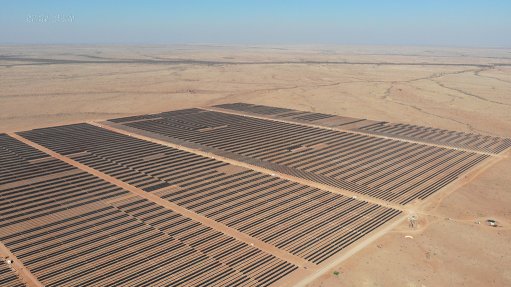Working group meeting to address impact of neonicotinoids in Africa
The potential risk of neonicotinoids in Africa will be assessed at a working group meeting hosted by the Academy of Science of South Africa (ASSAf) and the German National Academy of Sciences Leopoldina, in Nairobi, Kenya, from May 13 to 15.
The working group meeting follows on a workshop held in South Africa in November 2018 and is aimed at gathering experts in the field to collaborate on drafting a report that summarises and outlines the state of knowledge on neonicotinoids and their impact on ecosystem services for agriculture and biodiversity in Africa.
Key recommendations on the use of neonicotinoids and dissemination of these to policymakers and relevant political and scientific authorities will also be drafted.
ASSAf states that increasing evidence from several scientific reviews indicates that the widespread prophylactic use of neonicotinoids has severe negative effects on non-target organisms that provide ecosystem services, including pollination and natural pest control, resulting in the partial ban of neonicotinoids in Europe in April 2018.
Neonicotinoids have become the most widely-used insecticide since the 1990s and, registered in more than 120 countries, are the dominant agent used on insecticide-treated seeds, ASSAf indicates.
Neonicotinoids cause plant tissue to become toxic and block neural pathways in insects consuming parts of the plant. Because of the systemic nature, the insecticide gets into pollen and nectar, as well as plant residues, and non-target species, such as pollinators and predators, are also exposed.
When applied as dressings on plant seeds, significant parts of the active ingredient enter the soil and aquatic systems, broadening the potential exposure to non-target and non-insect species, says ASSAf.
Research has identified many potential effects on honeybees and other pollinators, for example, bumble bees, solitary bees, flies, beetles or butterflies. Concern over the effects on individual species has also been associated with findings of substantial declines in insect populations overall, in particular honeybees, which could bring about a global pollination crisis, the organisation states.
Although much of the scientific literature has emerged from Europe, the US and Canada, these findings can be applied to agricultural systems of other countries.
In Africa, subsistence farmers and rural communities rely directly and indirectly on the services provided by pollinators, either as hive products, like honey, or by pollinating the crops. Owing to the high dependence of African economies and societies on agriculture, ASSAf emphasises the need to identify and collate data that will allow the potential risks in Africa to be better evaluated.
Comments
Press Office
Announcements
What's On
Subscribe to improve your user experience...
Option 1 (equivalent of R125 a month):
Receive a weekly copy of Creamer Media's Engineering News & Mining Weekly magazine
(print copy for those in South Africa and e-magazine for those outside of South Africa)
Receive daily email newsletters
Access to full search results
Access archive of magazine back copies
Access to Projects in Progress
Access to ONE Research Report of your choice in PDF format
Option 2 (equivalent of R375 a month):
All benefits from Option 1
PLUS
Access to Creamer Media's Research Channel Africa for ALL Research Reports, in PDF format, on various industrial and mining sectors
including Electricity; Water; Energy Transition; Hydrogen; Roads, Rail and Ports; Coal; Gold; Platinum; Battery Metals; etc.
Already a subscriber?
Forgotten your password?
Receive weekly copy of Creamer Media's Engineering News & Mining Weekly magazine (print copy for those in South Africa and e-magazine for those outside of South Africa)
➕
Recieve daily email newsletters
➕
Access to full search results
➕
Access archive of magazine back copies
➕
Access to Projects in Progress
➕
Access to ONE Research Report of your choice in PDF format
RESEARCH CHANNEL AFRICA
R4500 (equivalent of R375 a month)
SUBSCRIBEAll benefits from Option 1
➕
Access to Creamer Media's Research Channel Africa for ALL Research Reports on various industrial and mining sectors, in PDF format, including on:
Electricity
➕
Water
➕
Energy Transition
➕
Hydrogen
➕
Roads, Rail and Ports
➕
Coal
➕
Gold
➕
Platinum
➕
Battery Metals
➕
etc.
Receive all benefits from Option 1 or Option 2 delivered to numerous people at your company
➕
Multiple User names and Passwords for simultaneous log-ins
➕
Intranet integration access to all in your organisation


















